|
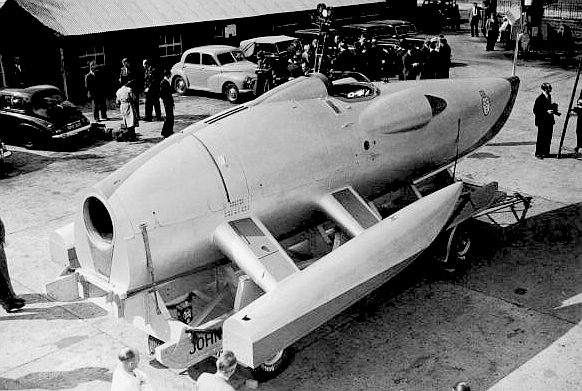
The
Crusader - jet propelled water speed record boat in 1952
BBC
OCTOBER 1 2012 - Bloodhound boss Noble marks fatal Loch Ness speed bid
The director of a UK project to develop a car capable of reaching 1,000mph (1,610km/h) has marked 60 years since a fatal water speed record bid.
London-based John Cobb had already set the land speed record when he attempted to gain the fastest speed on water on Loch Ness on 29 September 1952.
After travelling at 206mph (331.5km/h) his boat broke up and he was killed.
Richard Noble, director of the Bloodhound project, laid a wreath at Mr Cobb's memorial at the loch on Sunday.
The project's Bloodhound SuperSonic Car (SSC) will be powered by a rocket bolted to a Typhoon fighter jet engine. The first UK test firing of the rocket has been planned for Wednesday.
The wreckage of the Crusader, the jet-propelled boat Mr Cobb used in his fatal water attempt, was found at the bottom of Loch Ness in 2002.
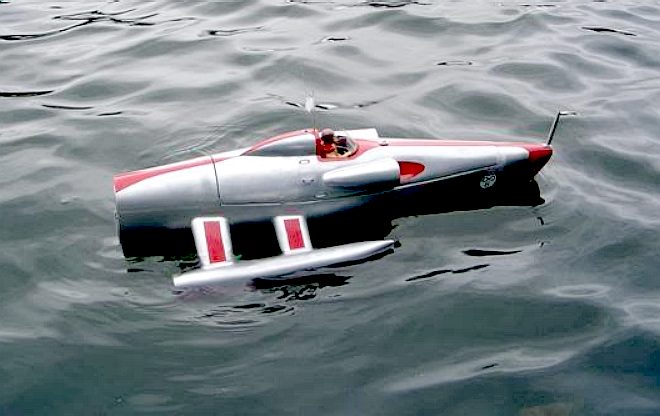
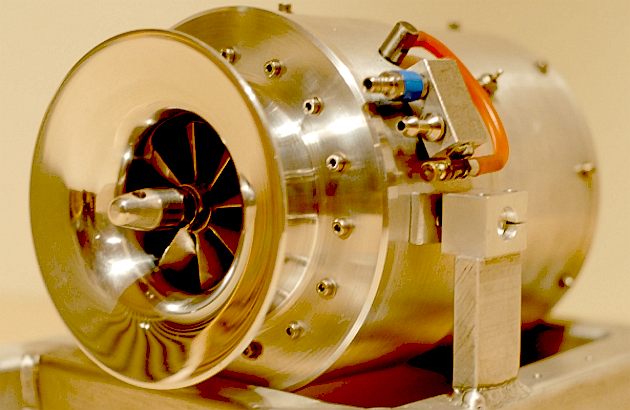
A
working model of the Crusader on the water and a real gas turbine model
engine, also fitted into a model of John Cobb's inspirational machine.
He was aiming to beat the water speed record of 178.4mph (287.1km/h) held by the American Stanley Sayres.
On his first run Mr Cobb, a London fur broker, recorded 206mph, the first man to travel at such a speed on water.
But yards beyond the mile marker, when he should have turned round and repeated the distance, he hit three freak waves.
The craft broke up and sank, catapulting Mr Cobb into the loch.
One eyewitness described the flimsy red and yellow pieces of the Crusader on the water as being like "autumn leaves". Most of the craft disappeared.
Mr Cobb's body was recovered after the crash, but for 50 years the wreckage of the Crusader has lain undiscovered 200m (656ft) down in the depths of Loch Ness.
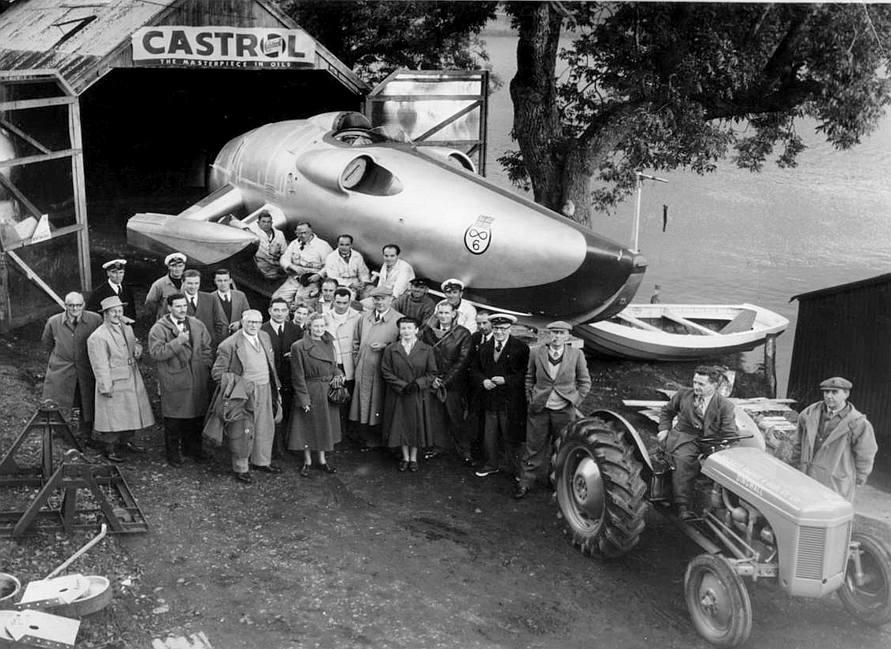
BBC NEWS JULY 12 2002
The wreckage of the boat used by John Cobb in his fatal attempt to beat the world water speed record has been found at the bottom of Loch Ness.
BBC Scotland has exclusive pictures of the jet-propelled Crusader which broke up on impact in the record-breaking attempt 50 years ago.
Cobb already held the world land speed record when he took his boat onto Loch Ness in September 1952, aiming to beat the water speed record of 178.4 miles per hour held by the American Stanley Sayres.
15 years later history would repeat itself with Donald
Campbell and K7.
On his first run Cobb, a London fur broker, recorded 206mph, the first man to travel at such a speed on water.
But yards beyond the mile marker, when he should have turned round and repeated the distance, he hit three freak waves.
The flimsy craft broke up and sank, catapulting its pilot into the dark waters.
One eyewitness described the flimsy red and yellow pieces of the Crusader on the water as being like "autumn leaves". Most of the craft disappeared.
Cobb's body was recovered after the crash, but for 50 years the wreckage of the Crusader has lain
undiscovered 200 metres down in the
depths of Loch Ness.
Before World War Two, Cobb had attained a reputation as a speed king.
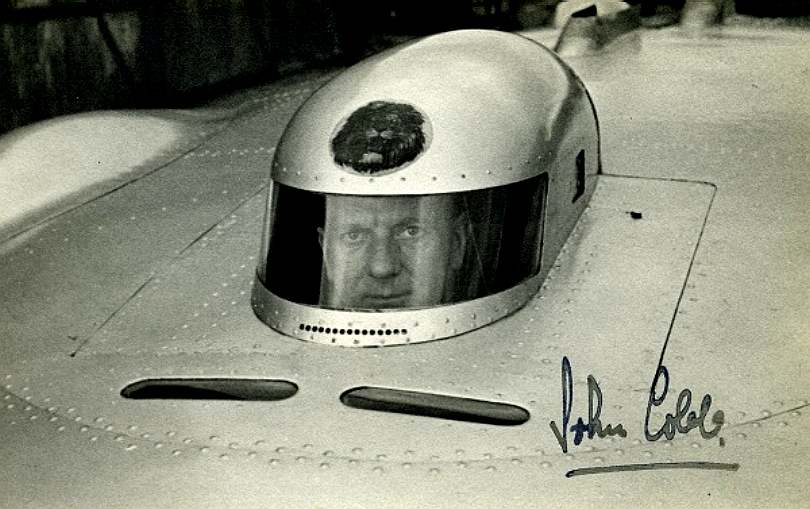
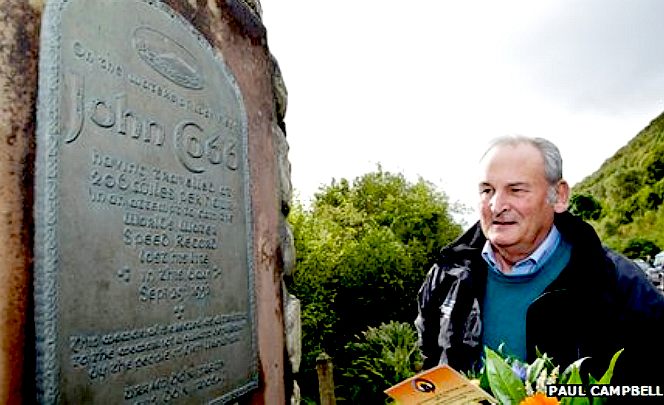
LEFT
- John
Cobb's most successful vehicle was the Railton Mobil Special, designed for
him by Reid Railton. This car achieved a
394 mph record in 1947 at the Bonneville Salt
Flats, a benchmark for a piston powered wheel driven car. RIGHT -
Former LSR record holder, Richard Noble pays his respects to a great man.
RECORD
BOOKS
He reigned supreme at the Brooklands motor racing track in the 1930s.
In 1947, at Bonneville Flats in Utah, he exceeded 400mph in a car before deciding to go for the double with an attempt at the water speed record.
His 206mph top speed did not enter the record books because he did not complete the second run of his attempt.
Fifty years on, the wreck of the Crusader was discovered by a team belonging to the Academy of Applied Science.
The crew were investigating the Loch Ness monster phenomenon with an underwater camera when they came across the wreck.
Like the monument to Cobb which stands at the side of the loch, the searchers said Crusader should now stay where she is.
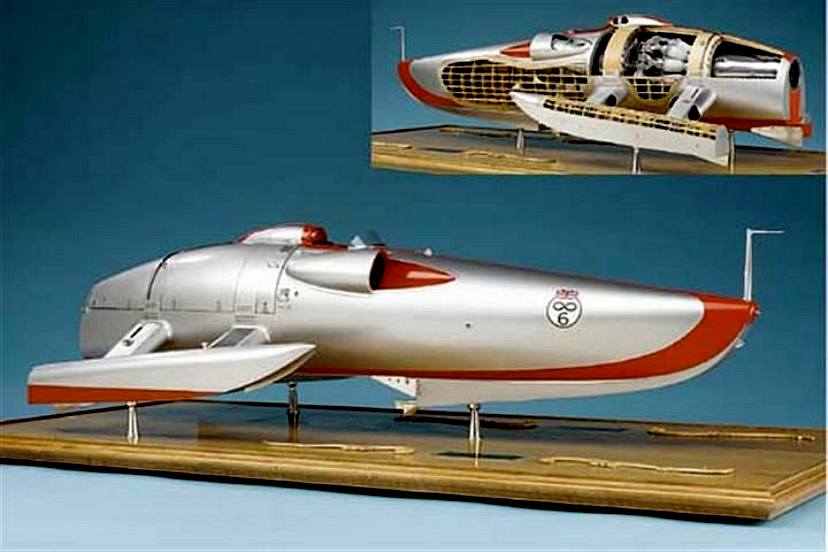
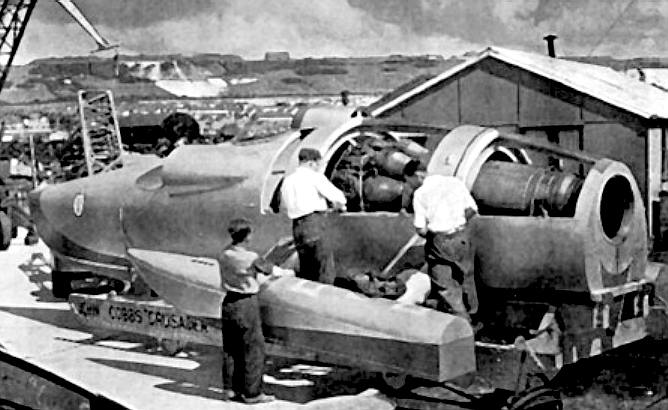
A
rather nicely detailed model, showing the construction with cutaway
sections - and the real thing being built by Vospers.
COMMENT
We
agree that the Crusader should stand as a shrine to man's quest for
advancement. Why not mark the site such that it can be seen by GPS
maps and maybe light the marked out area on anniversaries.
IN
MEMORIAM - WATER
SPEED RECORD
John
Cobb died in 1952, attempting to break the world water speed record at
Loch Ness in the jet speedboat
Crusader at a speed in excess of 200 mph (320 km/h). The boat hit an unexplained wake, which some believers of the Loch Ness Monster claim was caused by the wake of a large
animal. Nearby, there is a memorial to him erected by the people of Glenurquhart. He is buried at Christ Church, Esher.
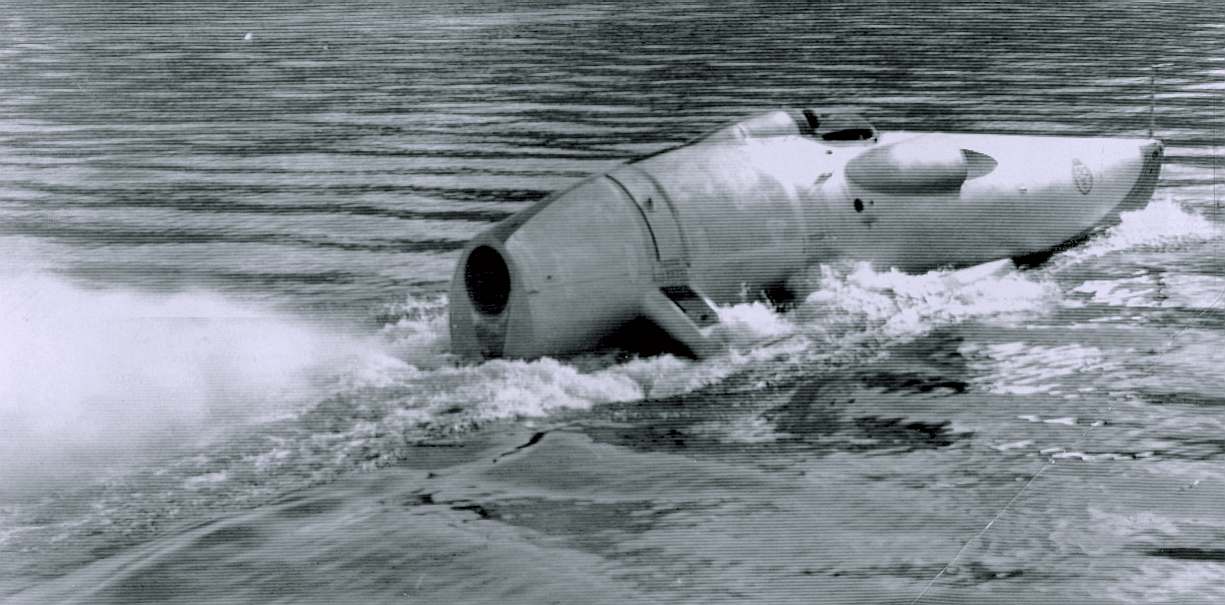
SEGRAVE
TROPHY
He was awarded the
Segrave Trophy in 1947.
On 27 March 1953 he was awarded the Queen's Commendation for Brave Conduct - John Rhodes Cobb (deceased), Racing Motorist. For services in attempting to break the world's water speed record, and in research into
high speed on water, in the course of which he lost his life.
PERSONAL LIFE
John Cobb married twice, first to Elizabeth Mitchell-Smith in 1947. After her
death in 1948 he married Margaret Glass (1917–2007) in 1950.
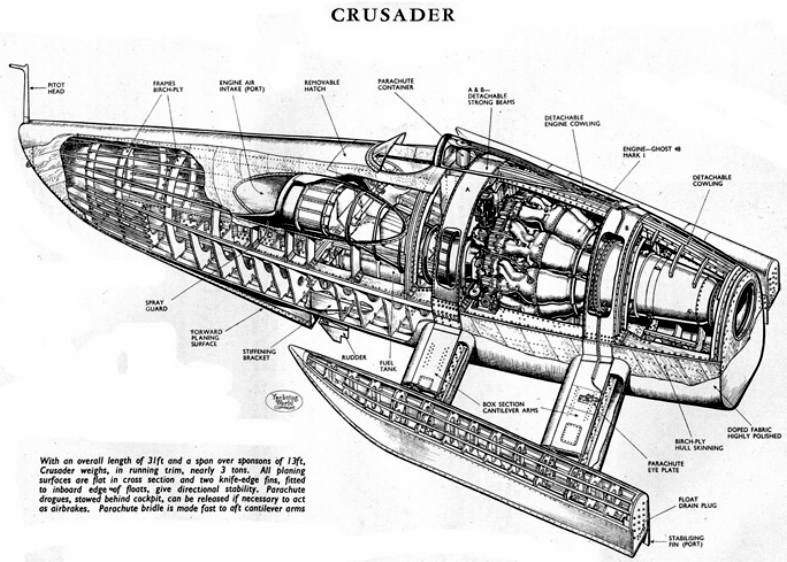
LINKS
BBC
news Crusader John Cobb Richard Noble Scotland
highlands
BBC
news 2002 Crusader found Loch
Ness Scotland
Loch
Ness Project Cobb's_Crusader_found
Leslie
Field on john_cobb
John_Cobb_racing_driver
http://news.bbc.co.uk/1/hi/scotland/2124397.stm
http://www.bbc.co.uk/news/uk-scotland-highlands-islands-19784127
http://www.lesliefield.com/personalities/john_cobb.htm
http://en.wikipedia.org/wiki/John_Cobb_(racing_driver)
http://www.antiquetoyworld.com/auctions/only-known-example/
|








